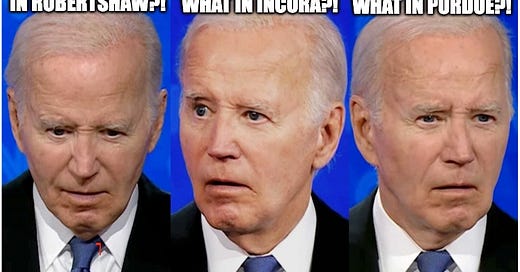What a month for the bankruptcy industry.
As some of the bigger cases in recent memory roll off — congratulations, for instance, to everyone involved in achieving confirmed plans of reorganization in the Rite-Aid Corporation and Cano Health chapter 11 bankruptcy cases — and the industry continues to deal with higher interest rates for longer (mostly in the form of low-to-middle market sale cases in-court or, alternatively, liability management exercises out of court), some recent court decisions have the potential to upend bankruptcy practice as we know it.
On June 20, 2024, Judge Lopez in Texas issued a long-awaited memorandum decision and order in the adversary proceeding between Invesco Senior Secured Management Inc. (“Invesco”) on one hand, and Robertshaw US Holding Corp. (“Robertshaw”), One Rock Capital Partners (“One Rock”) and certain other “lender plaintiffs” (Bain Capital LP, Eaton Vance Management, and Canyon Partners LLC) on the other hand. We covered this sh*t show of a double uptier liability management fiasco in depth here…
… it’s worth revisiting … and subsequently just sat back and watched the gloves come off during the course of months of costly litigation.
High level, here’s what you need to know:
📍In May ‘23, Robertshaw, Invesco, the lender plaintiffs and One Rock engaged in the first of two uptier transactions, providing first out new-money loans and exchanging existing first and second lien loans into new super-priority second and third out loans.
📍Invesco subsequently acquired a majority in principal amount of the outstanding first and second out loans so that it would have “required lender” status. It later became clear from arguments that Invesco didn’t have a whole lot of faith in Robertshaw’s go-forward prospects and ability to avoid bankruptcy, so it was strategically positioning itself to be in pole position to backstop a DIP (and derive all of the sweet SWEET economic benefits therefrom) and eventually own the business (via credit bid, with breakup protections should someone come in higher or better).
📍But Invesco wasn’t slick.
📍The lender plaintiffs found out about Invesco’s machinations and quickly went on the offensive; they approached Robertshaw and embarked on a series of deals that effectively stripped Invesco of “required lender” status and shifted it back over to them — and by “stripped,” which sounds highly negative, we mean paid off Invesco’s first out loans with a premium, LOL. In many respects you have to admire the f*ckery of everyone here: first the company formed a new entity owned by Robertshaw (without voting interest, that went to a parent entity — does this make it a “subsidiary?,” 🤔); second, the lender plaintiffs loaned that new entity $228mm; third, the new entity dividended the $228mm to Robertshaw which used the proceeds to prepay the super-priority first-out loans in an amount that eliminated Invesco’s “required lender” status. Now the “required lenders,” the lender plaintiffs amended the credit agreement to allow Robertshaw to incur $228mm of new debt and repay the initial $228mm loan to the new entity. This structure was a workaround designed to avoid a covenant breach in the credit agreement which prohibited Robertshaw and its “subsidiaries” from incurring new debt.
📍Invesco was like, “what the holy f*ck” and sued the lender plaintiffs and One Rock in New York. Nevermind it got paid out at par plus on the first lien loans, the deal implicated other potential economics!
📍Two months later Robertshaw filed for bankruptcy, making this yet another embarrassing example of a company that embarked on a comprehensive LME transaction (two actually) only to swirl around the dirtiest downtrodden bankruptcy bin imaginable. We’re talking like straight out of Trainspotting, folks. The Robertshaw debtors — along with One Rock and the lender plaintiffs — filed an adversary proceeding against Invesco, to which Invesco shot over some counterclaims. Everyone wanted declaratory judgements! Everyone wanted to know what the bloody hell Judge Lopez was going to do in this high profile situation! Would he play ball with the debtor and the lender plaintiffs and establish his debtor-friendly bona fides?
📍Most people in the market seemed to suspect that he would, though Judge Lopez took offense at the mere suggestion that he might be a sure shot booster for the debtors.
📍Judge Lopez did conclude that the newly formed entity was a “subsidiary” for purposes of the credit agreement and therefore found that the loan to the newly formed entity breached the credit agreement. Invesco be like:
📍Judge Lopez be like…






